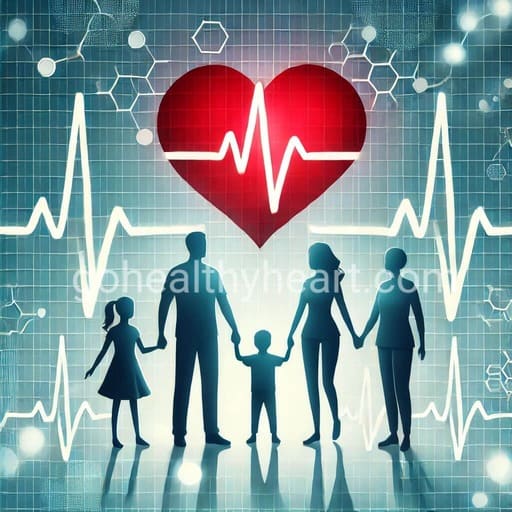Heart Attack Symptoms in Women – Signs to Watch For

Heart disease remains a leading cause of death among women, yet many people—women included—often don’t recognize the signs of a heart attack in women. The classic “crushing chest pain” isn’t always present, and some symptoms can be so subtle that they’re mistaken for stress, indigestion, or even the flu. Understanding heart attack symptoms in women is critical for getting quick medical help, so this guide will break down these unique indicators, empowering you to recognize them in yourself or a loved one.
Why Heart Attack Symptoms in Women are Different
Women’s heart attack symptoms often differ due to unique biological factors. For instance, hormonal differences, especially related to estrogen, play a significant role in how heart disease presents in women. Estrogen has protective effects on heart health, which change significantly post-menopause. As estrogen levels decline, women’s risk for heart disease—and heart attack—rises, which can lead to symptoms that differ from those commonly seen in men.
Additionally, studies show that women are more likely to experience what are termed “atypical” symptoms, which don’t involve sharp or severe chest pain. Unfortunately, these symptoms are often mistaken for other ailments, such as stress or acid reflux, contributing to delayed treatment and, potentially, worse outcomes.
Common Heart Attack Symptoms in Men vs. Women
Understanding the differences between heart attack symptoms in men and women can help save lives. While men often experience intense chest pain that radiates down the left arm, women may have subtler symptoms.
Men’s Heart Attack Symptoms:
Severe chest pain or tightness
Pain radiating to the left arm, jaw, or neck
Shortness of breath
Sweating, nausea, or lightheadedness
Women’s Heart Attack Symptoms:
Pain in the back, jaw, or neck (without chest pain)
Extreme, unusual fatigue
Nausea or vomiting
Shortness of breath
Dizziness or lightheadedness
Recognizing these differences is essential for prompt diagnosis and care, as women often experience what’s known as “silent heart attacks.” This term describes heart attacks that occur without the classic, obvious symptoms and can often go undiagnosed until damage is done.
Subtle Symptoms of a Heart Attack in Women
One of the main challenges with heart attack symptoms in women is how easily they’re mistaken for other conditions. Let’s look closely at some of the less obvious signs:
Jaw and Neck Pain
Pain in the jaw, neck, or upper back can signal a heart attack, especially when it comes on suddenly. This pain often radiates, which may feel like a persistent, dull ache rather than sharp pain.
Extreme Fatigue
Women may experience an overwhelming sense of tiredness, even if they haven’t exerted themselves. This fatigue can be severe enough to impact daily activities, and it’s often mistaken for the flu or exhaustion.
Nausea and Dizziness
Nausea and lightheadedness can also indicate a heart attack. While these symptoms may seem unrelated to the heart, they can occur when the heart struggles to pump blood effectively.
Many women report these symptoms leading up to a heart attack, and they’re easy to miss because they don’t fit the “typical” heart attack mold.
Why Women’s Heart Attack Symptoms are Often Overlooked
There’s a troubling reality in healthcare: women’s heart attack symptoms are often overlooked or misinterpreted as anxiety or stress. Research indicates that gender bias in healthcare contributes to this issue, with many women receiving delayed or incorrect diagnoses. Societal norms also play a role; women tend to downplay their own symptoms, often dismissing pain or discomfort as minor.
Compounding this problem is the fact that many medical studies historically focused on men, so medical professionals are more familiar with the classic signs of a heart attack that men typically experience.
How to Advocate for Your Heart Health as a Woman
For women, understanding heart attack symptoms and advocating for one’s health are essential. Here are a few ways to ensure your concerns are taken seriously:
Describe Your Symptoms Clearly
When speaking to healthcare providers, be as specific as possible. Mention any pain in areas like the jaw, back, or neck, and be clear about fatigue or dizziness. Even if you think the symptoms are minor, they’re worth discussing.
Get Regular Screenings
Regular cardiovascular screenings are especially important for women, particularly after menopause. These include cholesterol checks, blood pressure monitoring, and heart health assessments to keep track of potential risks.
Know Your Risk Factors
Heart disease risk is impacted by several factors, including family history, high blood pressure, high cholesterol, and diabetes. Be proactive about managing these and seek support from healthcare providers if needed.
What to Do if You Suspect a Heart Attack
If you or someone you’re with shows signs of a heart attack, every second counts. Here’s what to do:
- Call Emergency Services
Don’t hesitate to call for help. Emergency responders are trained to recognize and respond to heart attack symptoms quickly. - Describe Symptoms Clearly
If possible, describe any symptoms related to the chest, jaw, neck, or back, as well as any dizziness or nausea. Providing these details can help responders understand the urgency of the situation. - Stay Calm and Encourage Slow Breathing
Staying calm is crucial for both the person experiencing the heart attack and anyone assisting. Encourage slow, deep breaths to ease anxiety while help arrives. - Be Prepared to Offer Basic First Aid
Knowing basic first aid, including CPR, can make a huge difference in such situations. Consider taking a first aid course to be prepared in emergencies.
Conclusion
Heart attack symptoms in women can be subtle and easy to overlook, but knowing the signs can make all the difference. From jaw and back pain to extreme fatigue, these symptoms are unique yet critical indicators that women need to recognize. By understanding the variations in heart attack symptoms in women, we can help more women receive prompt and accurate treatment. If you or someone you know is experiencing any of these signs, don’t wait—seek medical help immediately. Remember, knowledge is power, and being informed could be the key to saving a life.




2 thoughts on “Heart Attack Symptoms in Women – Signs to Watch For”